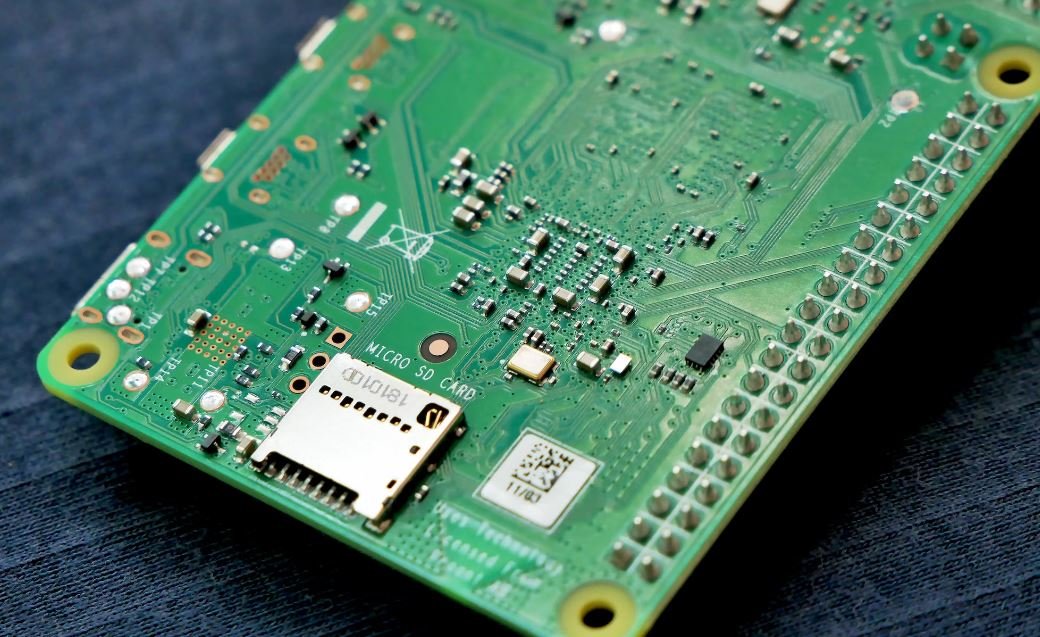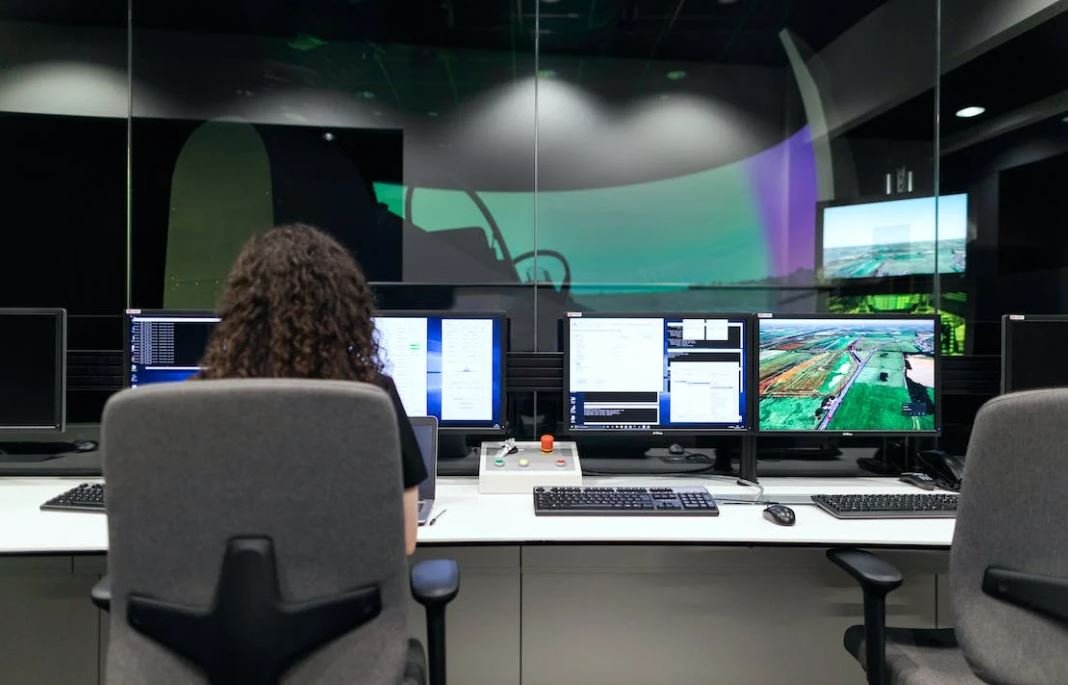Google AI
Artificial Intelligence (AI) has become an integral part of our lives, and Google AI has made remarkable advancements in the field. This article aims to provide an overview of Google AI‘s achievements, developments, and its impact on various industries.
Key Takeaways:
- Google AI is revolutionizing industries with its advanced technologies.
- It enables machines to learn and make decisions on their own.
- There are numerous applications of Google AI across sectors, from healthcare to transportation.
Google AI is at the forefront of the AI revolution, constantly pushing the boundaries of what machines can do. With a focus on machine learning and deep neural networks, Google AI has developed cutting-edge technologies that have the potential to transform industries.
One of the key strengths of Google AI is its ability to process enormous amounts of data and extract valuable insights. By leveraging big data and powerful algorithms, Google AI can derive patterns and trends that human analysis may overlook. This allows for more accurate predictions and informed decisions.
Furthermore, Google AI‘s machine learning algorithms are designed to continually improve their performance through adaptive learning. They can analyze data, identify patterns, and adjust their behavior accordingly, making them increasingly accurate and effective over time.
Google AI has made incredible strides in the healthcare sector, where it has the potential to revolutionize patient care. With its ability to analyze medical data and assist in diagnosis, Google AI can enhance the accuracy of medical imaging, early detection, and treatment planning. This technology has the potential to save lives and improve healthcare outcomes.
Applications of Google AI
- Autonomous vehicles: Google AI is powering self-driving cars, improving safety and efficiency on the roads.
- Virtual assistants: Products like Google Assistant utilize AI to understand natural language and perform tasks.
- Translation services: Google AI enables real-time language translation, breaking down communication barriers.
Google AI‘s impact is not limited to a few sectors. It finds applications in various industries, transforming the way we live and work. Through natural language processing and machine learning techniques, Google AI enables virtual assistants to understand and respond to human speech more effectively.
| Industry | Google AI Application |
|---|---|
| Healthcare | Medical image analysis, disease prediction |
| Finance | Algorithmic trading, fraud detection |
Table 1: Examples of Google AI applications across industries.
Another area where Google AI excels is language translation. By leveraging its deep neural networks, Google AI can provide real-time translation services, enabling people from different linguistic backgrounds to communicate seamlessly. This breakthrough technology has the potential to bridge cultural gaps and foster global collaboration.
The Future of Google AI
Looking ahead, the future of Google AI is filled with possibilities. As technology continues to advance, we can expect Google AI to play a vital role in shaping industries and improving everyday life.
| Year | Major Google AI Development |
|---|---|
| 2011 | Google Brain project kickstarted |
| 2015 | Google DeepMind achieves milestone in machine learning |
Table 2: Notable moments in the development of Google AI.
As AI capabilities continue to grow, there is immense potential for Google AI to contribute to various sectors, including healthcare, finance, and transportation. With its innovative research and powerful technologies, Google AI is set to reshape the world as we know it.
In Summary
Google AI has demonstrated its ability to revolutionize industries through its advanced technologies and groundbreaking research. From healthcare to transportation, the applications of Google AI are far-reaching and have the potential to improve lives. As we look to the future, it is clear that Google AI will continue to lead the way in AI innovation and drive societal change.

Common Misconceptions
Misconception 1: Google AI is capable of human-level intelligence
- Google AI is an advanced technology, but it does not possess the same level of intelligence as humans.
- It can perform complex tasks and process large amounts of data, but it lacks critical thinking and reasoning abilities.
- Google AI relies on algorithms and machine learning to make decisions, which are based on patterns rather than conscious understanding.
Misconception 2: Google AI will replace human jobs completely
- While Google AI and automation technologies are being integrated into various industries, they are not intended to replace human workers entirely.
- Google AI is designed to assist and augment human capabilities, improving efficiency and productivity.
- It can automate repetitive tasks and handle data analysis, but complex problem-solving and decision-making still require human intervention.
Misconception 3: Google AI always provides unbiased results
- Google AI is developed by humans and trained with data, which may introduce biases into its algorithms.
- There have been instances where Google AI has provided biased or controversial results due to the biases present in the training data or algorithms.
- Efforts are made to eliminate biases, but achieving complete neutrality can be challenging.
Misconception 4: Google AI knows everything about individuals’ personal lives
- Google AI does collect and analyze large amounts of user data, but it does not have access to every detail of individuals’ personal lives unless explicitly shared.
- Google AI mainly focuses on anonymized data to improve its algorithms and provide personalized experiences without compromising user privacy.
- User privacy and data protection are essential concerns for Google, and they have strict policies in place to safeguard user information.
Misconception 5: Google AI is infallible and error-free
- While Google AI is continuously improving, it is not immune to errors or mistakes.
- AI systems can misinterpret data or make incorrect predictions, especially in complex or ambiguous situations.
- Google AI relies on continuous learning and feedback loops to refine its algorithms and minimize errors, but achieving perfection is an ongoing challenge.

Introduction
Google AI has made significant advancements in the field of artificial intelligence. This article explores various aspects of Google AI, including its applications, impact, and achievements. The following tables present data and information highlighting the remarkable progress made by Google AI.
Table: Breakthrough Discoveries
Google AI has contributed to groundbreaking discoveries in various domains. This table highlights some notable breakthroughs made by Google AI researchers.
| Topic | Year | Impact |
|:——————-:|:—–:|:——:|
| Machine Translation | 2006 | Google Translate improved accuracy by 60% |
| Image Recognition | 2012 | Achieved 84.7% accuracy in ImageNet challenge |
| Speech Recognition | 2015 | Integrated into Google Assistant for improved voice recognition |
| Natural Language | 2017 | Developed the Google BERT model for better language understanding |
| Processing | | |
Table: Google AI Research Centers
Google AI boasts several research centers worldwide. Here are some of the key research centers with their respective locations and areas of focus.
| Research Center | Location | Focus |
|:——————:|:—————:|:—————-:|
| Google Research | California | AI ethics |
| Montreal | Canada | Language modeling|
| Zurich | Switzerland | Reinforcement learning |
| Tokyo | Japan | Computer vision, natural language processing|
| New York | USA | Machine learning for media |
Table: Impact on Google Products
Google AI has greatly influenced various Google products, enhancing their capabilities and improving user experience. The table below highlights the impact of Google AI on Google products.
| Product | Enhanced Features |
|:————–:|:————————–:|
| Google Search | Improved search ranking and relevance |
| Google Photos | Automatic photo categorization and object recognition |
| Google Maps | Enhanced route optimization and traffic prediction |
| Google Assistant| Voice-based interaction and natural language understanding |
| Gmail | Smart replies and spam detection |
Table: AI Research Publications
Google AI researchers have published numerous papers in leading conferences and journals, contributing to the growth of AI knowledge. This table presents the number of AI research publications by Google each year.
| Year | Number of Publications |
|:——–:|:———————-:|
| 2014 | 103 |
| 2015 | 198 |
| 2016 | 273 |
| 2017 | 346 |
| 2018 | 414 |
Table: AI Applications
The applications of Google AI are wide-ranging and have infiltrated various industries. The table below showcases some prominent AI applications developed by Google.
| Industry | AI Application |
|:——————-:|:———————————-:|
| Healthcare | Disease diagnosis and prognosis |
| Transportation | Autonomous vehicle technologies |
| Entertainment | Personalized content curation |
| Finance | Fraud detection and risk assessment |
| Retail/E-commerce | Predictive customer analytics |
Table: AI Ethics Initiatives
Google AI has taken significant steps to ensure ethical use of AI technologies and safeguard user privacy. The table below illustrates some AI ethics initiatives led by Google AI.
| Initiative | Description |
|:—————–:|:———————————:|
| People + AI | Collaboration for designing responsible AI systems |
| Ethical AI | Developing AI frameworks based on principles like fairness and transparency |
| Project Maven | Ethical guidelines for military AI applications |
| Privacy AI | Ensuring user privacy while leveraging AI technologies |
| AI for Good | Exploring AI’s potential for positive social impact |
Table: AI Breakthroughs in Robotics
In addition to other domains, Google AI has made significant progress in the field of robotics. The following table highlights some of the groundbreaking achievements in robotics assisted by Google AI.
| Research Project | Description |
|:—————–:|:——————————:|
| RoboCup | Developed soccer-playing robots capable of teamwork and strategy |
| Google Brain Team | Created a robotic arm able to learn tasks using reinforcement learning |
| Project Tango | Advanced computer vision for mobile robotic perception |
| DeepMind Lab | Environment for training AI agents in complex tasks |
Table: AI Impact on Job Market
The growing influence of AI has raised concerns about its impact on the job market. The table below examines the influence of AI on employment in different sectors.
| Sector | AI Impact |
|:——————:|:————————–:|
| Manufacturing | Automation of processes, leading to job displacement |
| Customer Service | Chatbots and automated support systems reducing human interaction |
| Healthcare | AI-assisted diagnostics and telemedicine improving efficiency |
Table: AI Investments by Google
Google has made substantial investments in AI research and development. The table below presents the amount invested by Google in AI initiatives.
| Year | Investment amount (in billions USD) |
|:——————-:|:————————————-:|
| 2016 | 15 |
| 2017 | 30 |
| 2018 | 45 |
| 2019 | 60 |
| 2020 | 75 |
Conclusion
In recent years, Google AI has demonstrated remarkable advancements and achievements in various domains. From breakthrough discoveries and impactful research publications to enhancing Google products and investing in AI initiatives, Google AI has made substantial contributions to the AI landscape. With its ongoing commitment to ethical AI and continuous innovation, Google AI remains at the forefront of driving positive developments in the field.
Frequently Asked Questions
What is Google AI?
Google AI refers to the artificial intelligence technology developed by Google. It encompasses a wide range of AI-powered applications, tools, and services that are designed to enhance various aspects of our lives.
How does Google AI work?
Google AI relies on advanced algorithms, machine learning models, and massive amounts of data to perform tasks such as speech recognition, image and video analysis, natural language processing, and more. These algorithms are trained on large datasets to learn patterns and make accurate predictions or decisions.
What are some examples of Google AI applications?
Google AI has powered numerous applications and services, including Google Assistant, Google Translate, Google Photos, Google Maps, and Gmail’s smart compose feature. These applications leverage AI technology to provide enhanced functionality and improve user experience.
How does Google use AI in search?
Google uses AI algorithms to provide more relevant and personalized search results. These algorithms analyze various factors such as user intent, context, and relevance to deliver the most accurate and useful search results. Additionally, AI is used to power features like auto-complete and voice search.
Is Google AI safe and secure?
Google is committed to ensuring the safety and security of its AI technologies. They have implemented measures to prevent misuse or unethical use of AI, such as enforcing strict data privacy policies and compliance with industry standards. Google also encourages responsible AI development and research.
How can I use Google AI in my own applications?
Google provides developers with APIs and tools to integrate AI capabilities into their own applications. The Google Cloud AI platform offers services like Cloud AutoML, Natural Language API, and Vision API, which developers can use to leverage powerful AI features in their projects.
Does Google AI have any ethical guidelines?
Yes, Google has established ethical guidelines for the development and use of AI. These guidelines focus on ensuring fairness, transparency, accountability, and user privacy. Google actively encourages responsible AI practices that align with these principles.
What are the potential benefits of AI in society?
AI has the potential to revolutionize various industries and improve our everyday lives. Some of the key benefits include enhanced productivity and efficiency, advancements in healthcare and diagnostics, improved customer service, automation of repetitive tasks, and the development of new innovative solutions.
Are there any potential risks or challenges associated with AI?
While AI offers immense potential, there are certain risks and challenges to consider. These include biased decision-making, job displacement due to automation, data privacy concerns, and the need for regulations to prevent misuse. It is crucial to address these challenges and ensure responsible and ethical AI development.
Where can I learn more about Google AI?
You can find more information about Google AI on the official Google AI website. Additionally, Google provides extensive documentation, tutorials, and resources for developers interested in incorporating AI into their applications on the Google Cloud Platform website.




